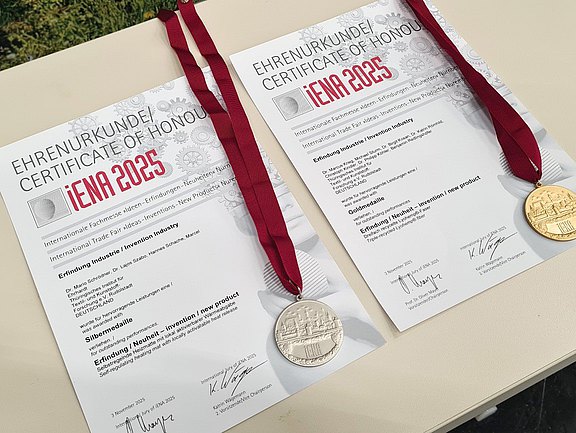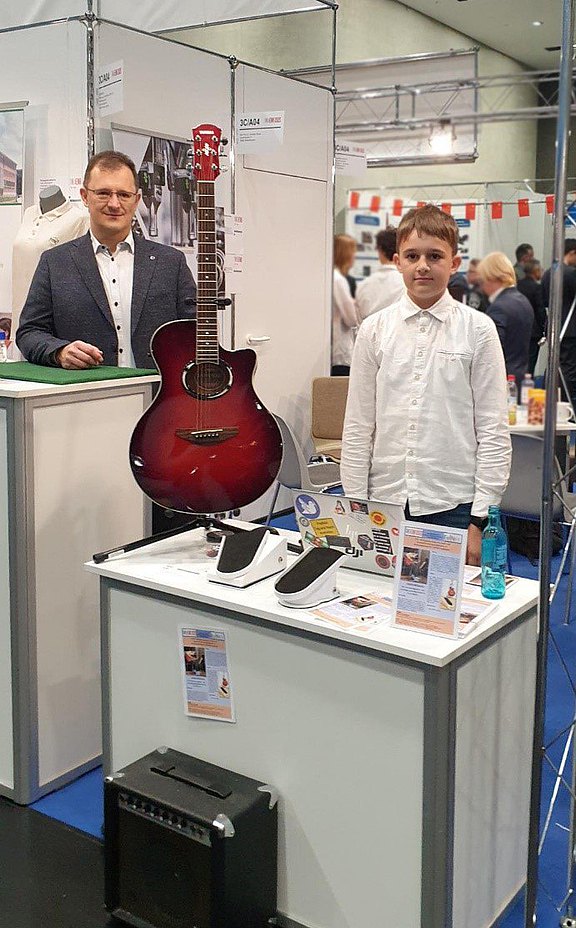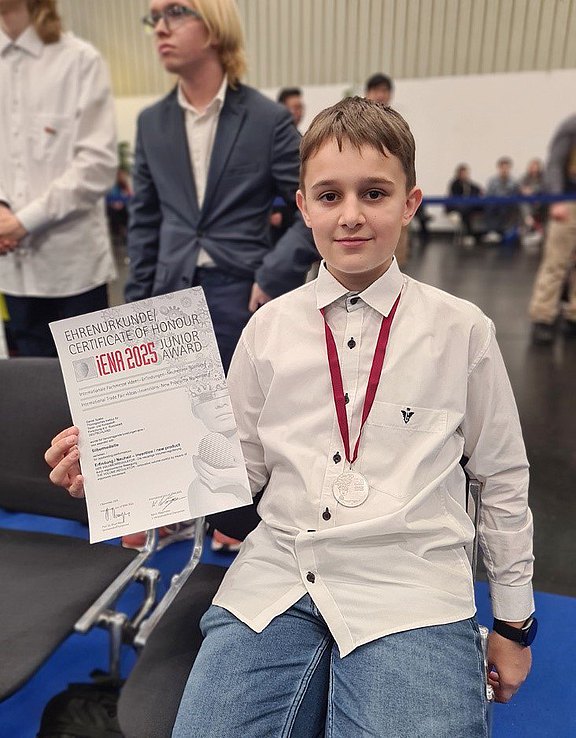Participation in the International Inventors' and New Products Fair (iENA) remains a sure bet for TITK. Once again this year, the Rudolstadt-based institute shone in Nuremberg with outstanding innovations – and was rewarded by the international jury. The result: one gold and one silver medal.
Nuremberg/Rudolstadt - A world first from TITK continued to be the talk of the town: after its premiere in mid-June at the World Expo in Japan, the first polo shirt made from triple-recycled cellulose fiber was also highly praised in Nuremberg at the beginning of November. This outstanding development is considered a milestone for the entire textile recycling industry.
The shirt is made from a hemp pulp fiber developed at TITK, which has undergone three consecutive processing stages for the first time. And it has performed so well that it could be easily processed into a fashionable polo shirt with excellent wearability. With this innovation, TITK has proven that material textile recycling does not have to end with one cycle and 100% recycled raw material, but that multiple recycling is also possible for sophisticated textile products without any loss of quality. The textile engineering implementation of this unique product was carried out by the Research Institute for Textiles and Clothing at the Niederrhein University of Applied Sciences.
The iENA jury awarded a silver medal to the second TITK exhibit – a “self-regulating heating mat with locally activatable heat emission.” In other words, the heating mat made of conductive polymer material reacts intelligently to direct contact. Only where people, animals, or objects are lying on it does it immediately generate soothing warmth – without any sensors or external controls, which significantly reduces the mat's energy consumption.
The material regulates itself: local deformation activates heat emission, while the material properties are adjusted to reliably prevent overheating. This new development is therefore ideal for energy-efficient seat and standing heaters, pet heating pads, and especially for electric cars. Precise heating makes all the difference when it comes to heat dissipation – it conserves battery power and increases range in cold temperatures.
Both innovations were presented in the usual manner by TITK working group leader Dr. Lajos Szabó, who this time had his son Daniel at his side. The 13-year-old takes after his father in terms of inventiveness and creativity and was delighted to receive his own silver medal as a young inventor. His novel volume regulator for guitarists, which he designed and manufactured himself, opens up new creative possibilities for musicians on stage and could become an exciting alternative to classic volume pedals in the future.


